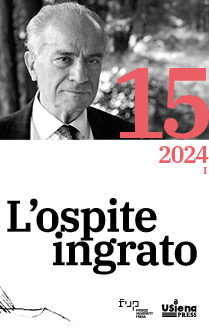«Rinascere come uomo che guarda»: etica e fenomenologia nella poesia di Vittorio Sereni
Published 2024-07-18
Keywords
- Vittorio Sereni,
- ethics,
- phenomenology,
- contemporary Italian literature
How to Cite
Copyright (c) 2024 Veronica Lombardi

This work is licensed under a Creative Commons Attribution 4.0 International License.
Abstract
This essay delves into the profound connection between poetry and experience in Vittorio Sereni’s third collection, Gli strumenti umani (1965), employing the equally human tools of phenomenology. Through this lens, we can grasp how the “identity fracture” staged in the work, one that Sereni experienced on both the literary and existential planes, serves as the prerequisite for comprehending the full complexity of the crisis, poetics and attitude that intimately bind the poet to the human being. To do so, we must revisit the years of his intellectual formation, when Sereni, as a student of Antonio Banfi, began to construct the foundations of his worldview and poetry on the master’s phenomenological thought. Gli strumenti umani stands as the culmination of a long and arduous expressive quest, one that is ever-evolving and never concluded, a true ethical maturation of poetic identity. It is driven by the declared intent of overcoming the reticences of his youthful Hermeticism and redirecting the lyrical ego towards the clear and transparent horizon of prose. It is precisely at this juncture that the writer’s individual experience can reflect and resonate with the manifold and multisensory experience of the reader.

